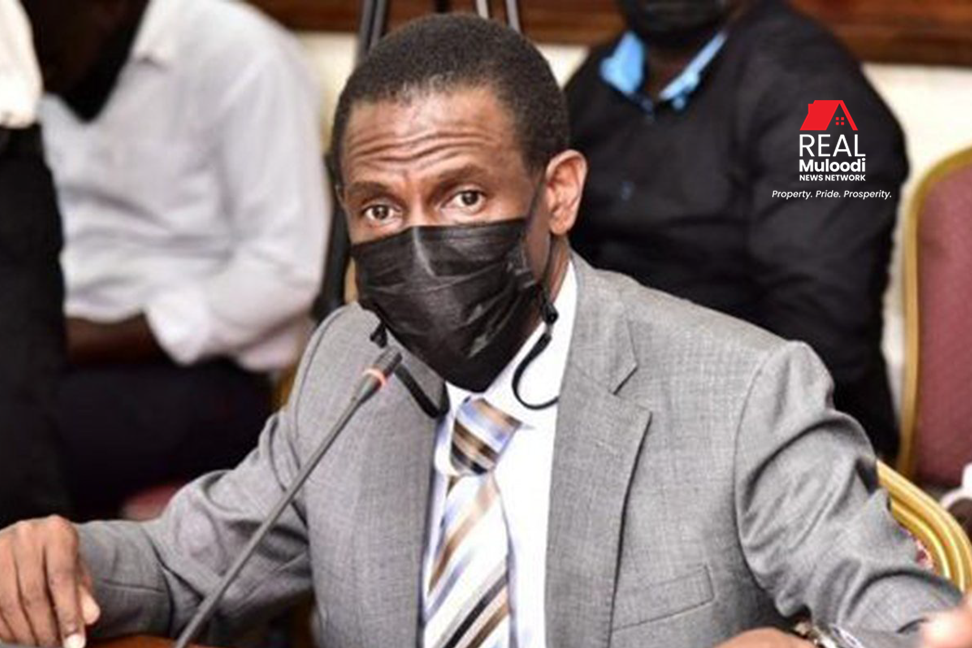UGANDA, Kampala | Real Muloodi News | The government is facing intense scrutiny following the revelation of a USh28.8 billion Namanve land compensation deal, which has raised questions about potential conflicts of interest and breaches of legal and ethical standards.
Attorney General Kiryowa Kiwanuka is at the centre of the controversy, with allegations that his involvement in the Namanve land compensation may have violated anti-corruption laws and fiduciary duties.
The controversy began to gain public attention after an online exchange on July 18, where journalist and legal activist Agatha Atuhaire questioned the Attorney General’s role in the Namanve land compensation deal.
The exchange, under the hashtag #AskTheAG, revealed that the land titles for the Namanve land in question were issued in 2014, despite the land having been classified as a wetland in 1995 and 1998. This classification should have rendered the land ineligible for compensation.
The Ministry of Lands had previously advised the Uganda Electricity Transmission Company Limited (UETCL) in a letter dated February 8, 2017, against compensating for the Namanve land due to its classification as a wetland.
However, despite this advice, the Attorney General authorised a consent judgment that approved the payout of USh28.8 billion.
Allegations of Conflict of Interest
At the core of the Namanve land compensation scandal is the allegation that Attorney General Kiwanuka signed the consent judgment twice—once in his official capacity and again through his private law firm, K&K Advocates. This dual role has led to accusations of self-dealing and a potential breach of conflict-of-interest principles.
Legal experts have suggested that this action Section 10 of the Anti-Corruption Act, criminalises the abuse of office. This section of the law stipulates that any public officer who acts arbitrarily or prejudicially against the interests of the government or another person commits an offence punishable by up to seven years in prison, a fine, or both.
In addition, Kiwanuka’s involvement in the Namanve land compensation deal could potentially violate Section 19(1) of the Anti-Corruption Act, which prohibits actions or omissions that knowingly cause financial loss to the government or any public body.
The penalties for such offences are severe, carrying a maximum sentence of 14 years imprisonment or a significant fine.
Historical Context and Legal Implications
The Namanve land compensation scandal has drawn parallels to past controversies involving former Attorneys General in Uganda.
Legal observers have compared the current situation to the prosecution of former Attorney General Joseph Ekemu in 2001, who faced charges of misappropriating USh30 million in interest from the Ministry of Justice.
Similarly, in 2009, then-Attorney General Kiddhu Makubuya resigned following his involvement in a compensation case that resulted in businessman Hassan Basajjabalaba receiving billions of shillings.
The Namanve land compensation case also brings to mind the infamous junk helicopter acquisition scandal, which led to the resignation of Solicitor General Lucien Tibaruka.
In each of these cases, the legal and ethical standards expected of government officials were called into question, leading to significant consequences for those involved.
In Kiwanuka’s case, the stakes are particularly high due to recent revisions to the Leadership Code, which he oversaw as Attorney General.
The revised code prohibits top government officials, including the Attorney General, from engaging in certain business activities that could lead to conflicts of interest.
Article 113(4) of the Constitution outlines the ethical obligations of Cabinet ministers, emphasising the need to avoid conflicts that could compromise their duties.
Despite these guidelines, Kiwanuka’s involvement of his private law firm in the Namanve land compensation deal has raised concerns that he may have violated these ethical standards, potentially putting himself in a legal and ethical bind.
Consent Judgment and Legal Scrutiny
The consent judgment in the Namanve land compensation case includes signatures from multiple representatives, including Court Registrar Simon Kintu Zirintusa, K&K Advocates, the Attorney General’s office, UETCL, and Magna Advocates.
The involvement of multiple signatories, some of whom are unnamed company officials and holders of powers of attorney for compensated parties, has further complicated the situation and raised questions about the transparency of the process.
As public outcry and legal scrutiny continue to mount, Attorney General Kiwanuka finds himself under significant pressure.
The unfolding scandal has placed him in a difficult position, with his actions being closely monitored by legal experts, the public, and government watchdogs.
The allegations of conflict of interest and potential violations of anti-corruption laws have raised concerns about the integrity of the legal system and the accountability of public officials.
Isaac Ssemakadde, executive director of Legal Brains Trust, a Kampala-based democracy and human rights watchdog, commented on the situation, stating, “The mere holding of a consent meeting between the Attorney General and his known private firm K&K Advocates is an indicator of a conflict of interest. The Attorney General’s coy description of his relationship with his former law firm, claiming to be ‘on sabbatical’ rather than having resigned, raises serious ethical concerns.”
Ssemakadde further noted that the lack of transparency in Kiwanuka’s handling of the Namanve land compensation deal undermines public trust in the office of the Attorney General and the rule of law.
He emphasised the importance of maintaining clear ethical boundaries, stating, “By trying to straddle both roles, the Attorney General risks scattering the very principles of justice he is sworn to uphold.”
As legal experts and the public closely watch the developments, the outcome of this case could set a precedent for how conflicts of interest and ethical violations are addressed in Uganda’s legal and political systems.
READ MORE LIKE THIS:
Tycoon Godfrey Kirumira Sues Police Bosses over Namanve Land Dispute



